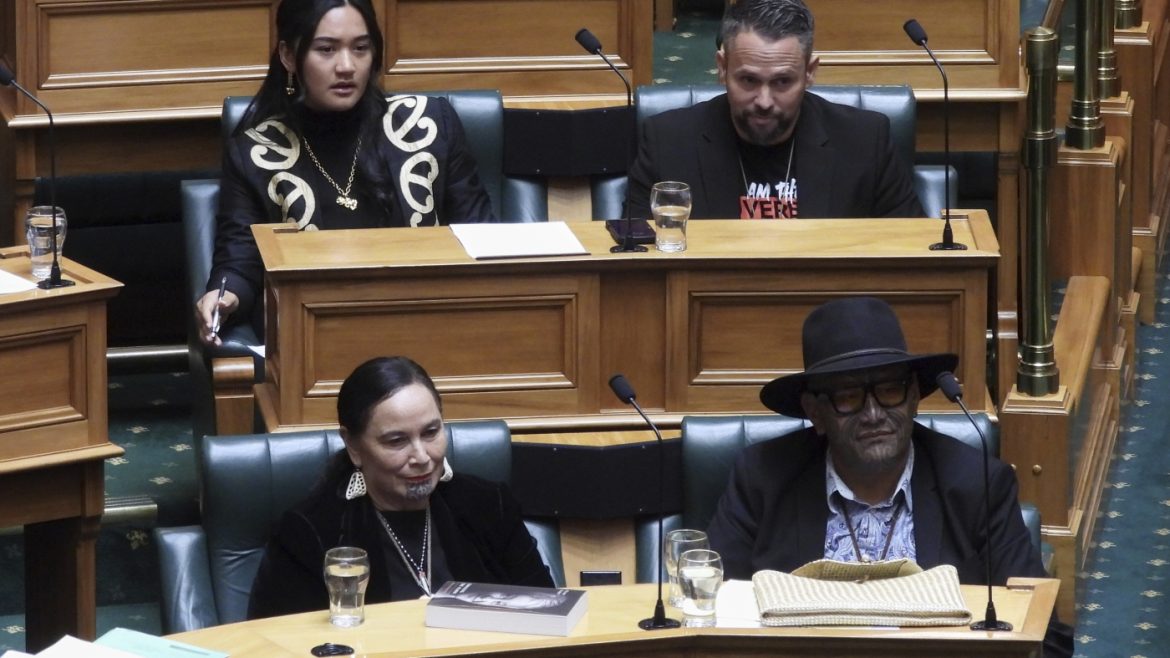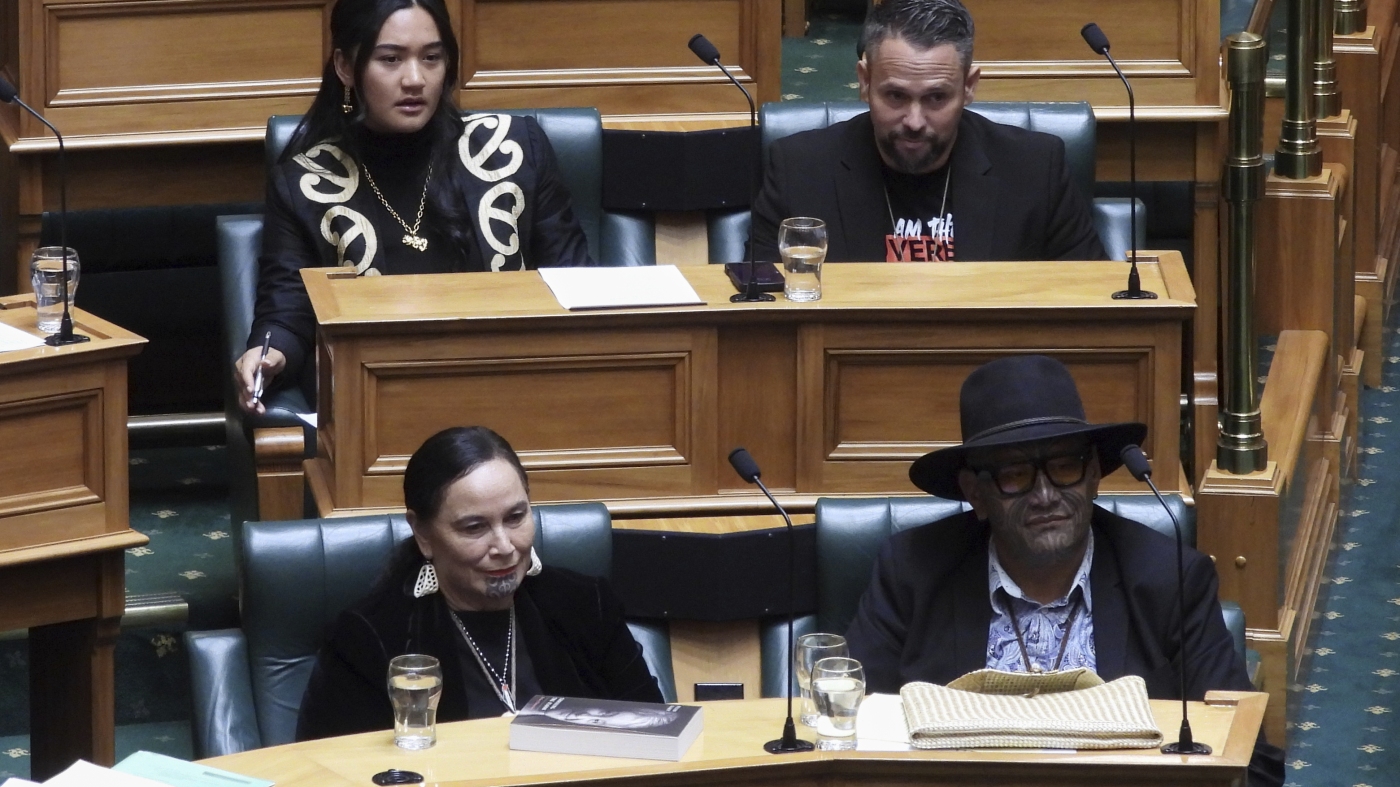Suspension of Māori Lawmakers in New Zealand Parliament Over Protest Haka: An In-Depth Analysis
Introduction
In a recent landmark decision, New Zealand’s Parliament enacted unprecedented suspensions against three Māori lawmakers who performed a protest haka during a legislative debate. This event has sparked widespread discussion about parliamentary decorum, indigenous cultural expression, and the political tensions surrounding contentious legislation related to the Treaty of Waitangi. This report unpacks the circumstances, implications, and broader significance of the suspension of Hana-Rāwhiti Maipi-Clarke, Debbie Ngarewa-Packer, and Rawiri Waititi.
Background: The Protest Haka and Its Context
The three Māori MPs belong to the Te Pāti Māori (Māori Party). During the first reading of the Treaty Principles Bill—a piece of legislation that seeks to reinterpret the foundational Treaty of Waitangi from 1840—they performed the haka, a traditional Māori ceremonial dance involving chanting, stamping, and challenge.
This haka was more than a cultural display; it was a pointed protest aimed at a bill perceived by many Māori and supporters as threatening indigenous land and cultural rights and undermining the principles of the Treaty. The MPs’ demonstration interrupted parliamentary proceedings, drawing attention to their vehement opposition to the bill’s intent and potential impact.
Parliamentary Response: The Suspensions
Following the haka performance in the debating chamber, a parliamentary committee composed of peers examined the event and recommended substantial disciplinary action. Their rationale was explicit: the suspension was not for performing the haka per se, which is a recognized Māori cultural form, but for the MPs’ act of striding across the floor toward opponents and engaging in a display that was judged to be intimidating and a contempt of parliamentary rules.
On June 5, 2025, the full Parliament voted to enact these recommendations, resulting in:
– A 7-day suspension for Hana-Rāwhiti Maipi-Clarke,
– And 21-day suspensions for Debbie Ngarewa-Packer and Rawiri Waititi.
These penalties mark the longest suspensions ever imposed in New Zealand’s parliamentary history, signifying the gravity with which the Parliament viewed the incident.
The Treaty Principles Bill: The Catalyzing Issue
To fully understand the motivations behind the MPs’ protest, one must examine the Treaty Principles Bill at the heart of the dispute. The bill aims to reinterpret the Treaty of Waitangi, which established the relationship between the British Crown and Māori chiefs and is New Zealand’s founding document.
Supporters of the bill argue it clarifies governance and rights in modern context, with coalition backing ensuring its passage after a parliamentary recess. However, opponents contend that reinterpreting the Treaty risks weakening Māori land rights, cultural protections, and the historic partnership guarantees, thus fracturing the fragile social and political support towards Māori communities.
The haka, therefore, was a deliberate cultural-political challenge asserting indigenous concerns and resisting legislative changes perceived as detrimental.
Cultural Significance vs. Parliamentary Protocol
The incident highlights the complex intersection of indigenous cultural practices within the settler-colonial political framework. The haka holds profound importance within Māori culture as a ceremonial dance related to challenge, unity, and identity. It is not uncommon for Māori MPs to incorporate their customs within parliamentary settings when appropriate.
Nevertheless, parliamentary protocol demands order and respect for procedural norms during legislative business. The MPs’ movement toward their opponents during the haka, combined with the vocal and physical nature of the act on the parliamentary floor, was judged to breach standards of conduct and intimidate fellow lawmakers.
This raises critical questions about how indigenous forms of expression are accommodated or constrained within formal political institutions and the recognition of cultural identity amid legislative governance.
Political and Social Reactions
The suspension has ignited debate both within New Zealand and internationally. Supporters of the Māori MPs decry the suspensions as heavy-handed measures that suppress indigenous voices and cultural rights. They argue that the haka was an important expression of political dissent reflecting enduring grievances around Māori sovereignty and treaty rights.
Conversely, other legislators and commentators view the actions as disrespectful to parliamentary processes, emphasizing that all members must adhere to the rules that enable democratic debate within the chamber.
Public opinion appears divided, with the episode shining a spotlight on the ongoing challenges of reconciling Māori political activism with state institutions and the sensitive legacy of colonial treaties.
Implications for Māori Representation and Future Parliamentary Conduct
The unprecedented suspensions set a new disciplinary precedent, possibly shaping how future indigenous protest within Parliament will be policed. The severity of the penalties may either deter expressive cultural activism or further galvanize Māori political engagement and calls for institutional reform.
For Te Pāti Māori and their supporters, the incident underscores the persistent political and social tensions around indigenous rights in New Zealand’s democracy. It also raises awareness of how indigenous lawmakers navigate identity, protest, and representation in political arenas structured by colonial legacies.
The debate surrounding the Treaty Principles Bill will continue to influence the trajectory of Māori-government relations, and the manner in which the Parliament engages with indigenous customs is likely to remain a contentious issue.
Conclusion: A Moment of Cultural Expression Meets Political Discipline
The suspension of three Māori MPs for performing a protest haka in New Zealand’s Parliament marks a significant moment where indigenous cultural expression collided with parliamentary discipline amid a deeply divisive legislative debate. The event exposed the fault lines between honoring Indigenous identity and maintaining procedural order, while also foregrounding broader struggles over the future of treaty rights in New Zealand.
As Parliament moves forward, this incident invites reflection on how democratic institutions can inclusively accommodate indigenous voices and forms of political expression without undermining the governance frameworks that sustain them. The legacy of this protest haka and its aftermath will likely resonate as a potent symbol of the ongoing quest for Māori political recognition and respect within New Zealand’s evolving democracy.


